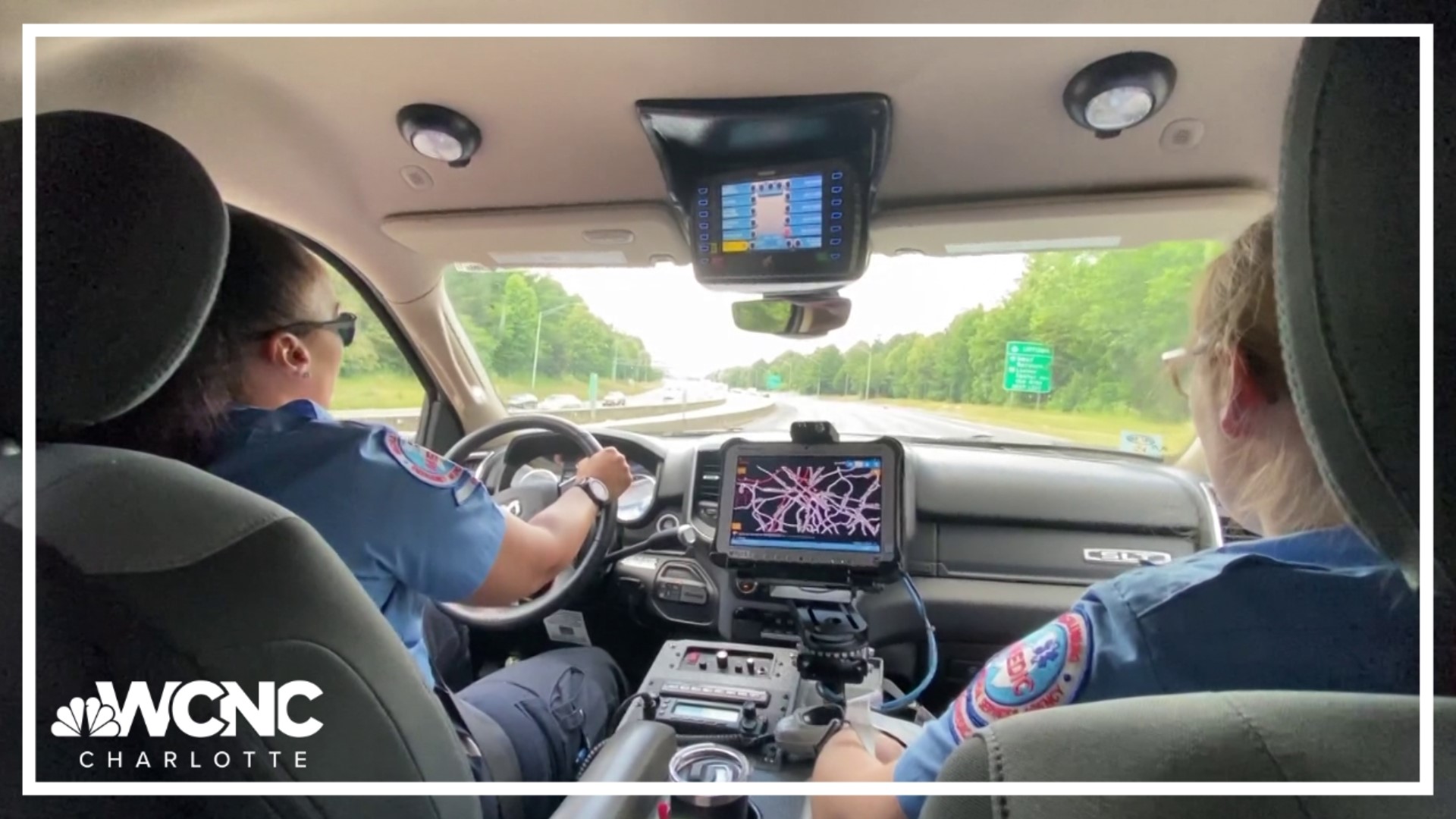CHARLOTTE, N.C. — Medic, the emergency management service that operates in Mecklenburg County, is working to ease its staffing shortages. Right now, it's offering a unique incentive for folks who want to join their team and become EMTs and paramedics.
Industries across the board are hurting for workers, including first responders. Medic said that is why they have an EMT program in place, where folks are guaranteed a job after school. They’ll get their hands-on training here and get paid while they are learning.
Madison Kiger is the paramedic crew chief for the agency. She said the staffing challenges are at a unique crossroads Medic is trying to tackle.
“it's absolutely been a difficult time for us to get through during COVID and after,” she said. “We also needed to increase the staffing because call volume has increased.”
Burnout, pay, and COVID-related reasons are some factors the agency said have contributed to the shortage. But there's hope the incentive of paid training sparks an interest in people who are looking for a new career.
18-year-old Nicholas Hoeben graduated in May and is now an EMT. He said he always saw himself in the medical field.
“Fire trucks, EMT trucks, all of that kind of first responder-related things I thought were really cool,” said Hoeben. “At a young age, that always intrigued me.”
He was able to get his training through a partnership between Medic and Central Piedmont Community College. His tuition and books were covered, and he was paid hourly to go to class. Medic said it's working, giving recruitment a boost.
“We can meet people at their level,” said Kiger. “We can also increase the diversity that we have here. So, doing that gets more employees, it gets more trucks on the streets, and allows us to meet our patient needs.”
The course at Central Piedmont teaches students the skills they need to provide emergency medical care and basic life support.
“What they are going to do is fully immerse themselves in the EMT course, they are going to do scenarios and hands-on things,” said Kiger. “They will have lectures, they will have ride time with crews so they will be able to get out there and put their skills to use.”
The paid training incentive also takes away much of the financial burden, which Hoeben said he appreciates.
“Not only does it make it easier for me life-wise, like being paid, going to school and not having to be stressed to pay for books, uniforms, having to work it in with my schedule,” said Hoeben. “They cover everything.”
Just a few months into his time with Medic, Hoeben said he is grateful to be able to serve his community.
“There have been some tough calls, but at the end of the day. I get to help people, get them to the hospital, and help give them the best chances to continue their lives here in Charlotte,” said Hoeben.
The need for EMTs is great but the need for paramedics is even greater.
“If a paramedic and an EMT is in a truck and someone is having cardiac arrest or a situation where someone is truly in danger of losing their life, the EMT is a phenomenal help," said Kiger. "However at the end of the day, the paramedic is responsible for that life and getting them from that scene to the hospital.”
Paramedics require more skills and are trained to perform more complex procedures compared to EMTs. Kiger said the agency is working to fill 41 paramedic vacancies and created a pathway for those wanting to be paramedics.
“What we have come to realize is that a lot of people struggle to manage to go to school, take time away from their current job, and be away from their families,” she said. “Also, it gives an extra incentive for them to come to work with us.”
EMTs on staff are offered incentives to become paramedics like bonuses, higher pay, and tuition reimbursement.
Hoeben hopes to be a paramedic by the time he is 21.
“They work it into your shift schedule, they work out class times, study schedule and they just make sure that you have the best chances to succeed in school possible,” said Hoeben.
Kiger says they also changed the way they respond to calls to be more efficient.
“Our goal is to triage those calls when they come in the communication center and understand which ones can be responded to by EMTs so we can save our paramedics for the true-life threats coming in,” she said.
Kiger added the programs are investments that go a long way to helping save lives.
“We want to get great providers here and offering to pay them is the least we can do to get them in here,” said Kiger.
Medic is seeing progress with the flow of EMTs coming in and joining the team and expects the same to happen for paramedics as the program grows.
Contact Jesse Pierre at jpierrepet@wcnc.com or follow her on Facebook, X and Instagram.

